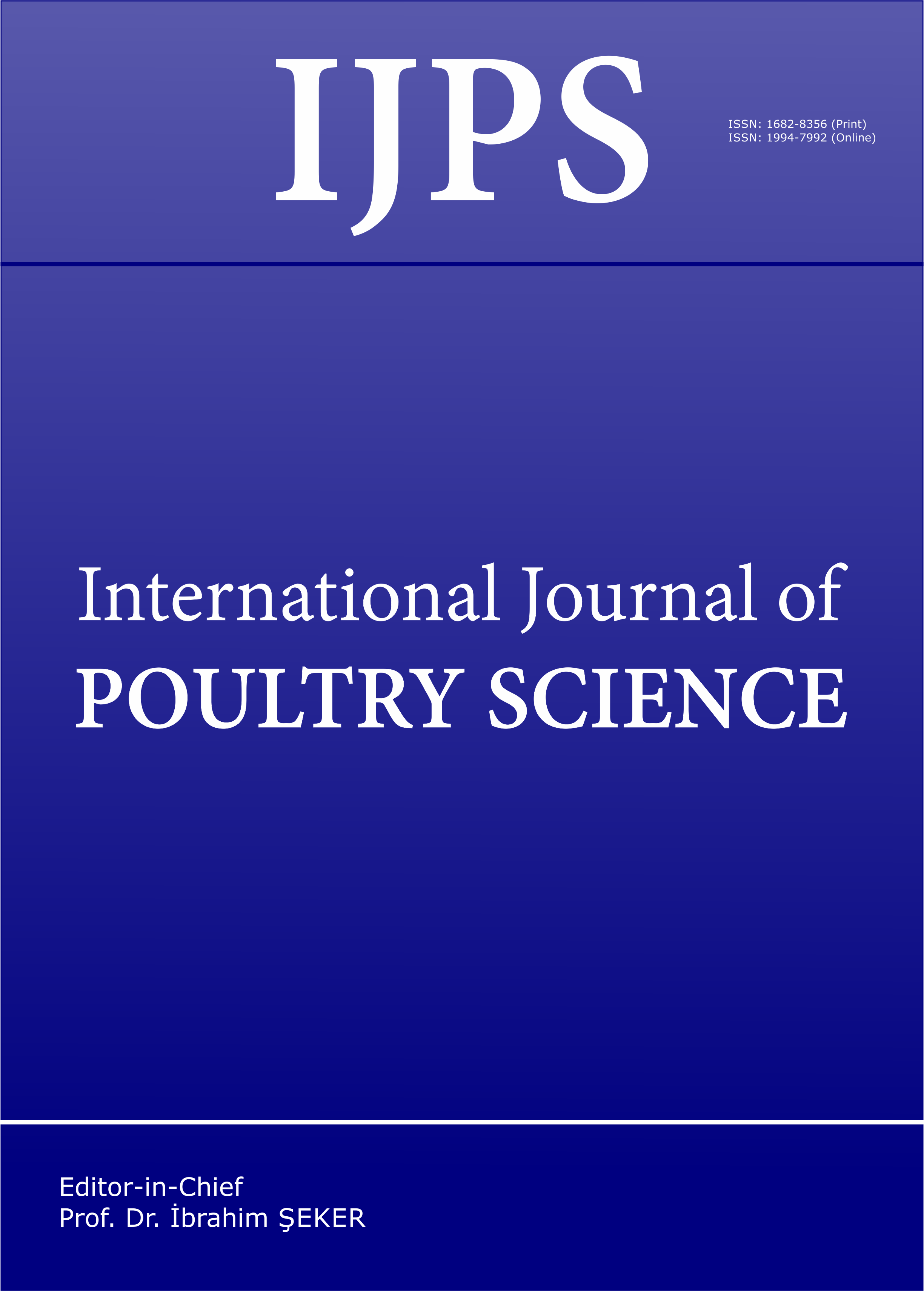Hen Performance and Egg Quality as Affected by Dietary Oregano Essential Oil and alpha-tocopheryl Acetate Supplementation
DOI:
https://doi.org/10.3923/ijps.2005.449.454Keywords:
α-tocopherol, egg quality, hen performance, lipid oxidation, oregano essential oil, yolk stabilityAbstract
In this study, the effect of feeding oregano essential oil and α-tocopheryl acetate on hen performance and egg quality, were investigated. Ninety-six Lohmann laying hens, 32-week-old, were allocated into four groups. One of the groups was given a control diet (CONT), another group a diet supplemented with 200 mg/kg α-tocopheryl acetate (VIT-E), whereas the other two groups were given diets supplemented with oregano essential oil at levels of 50 and 100 mg/kg (OR-50 and OR-100, respectively). Following 60 days feeding, hen performance and some egg quality characteristics were determined, whereas the oxidative stability of the refrigerated stored shell eggs and liquid yolks was also examined. Results showed that there were no significant (P>0.05) differences in egg production, feed consumption, feed conversion ratio, egg weight and shape, yolk diameter, height and color, Haugh units, and shell thickness, among the dietary treatments. The extent of lipid oxidation in shell eggs differed (P< 0.05) between the dietary treatments, but did not change with the storage time. In liquid yolks, lipid oxidation was higher (P< 0.05) in the CONT group compared to the OR-50 group, which in turn exhibited higher (P< 0.05) oxidation rate than the OR-100 group, a finding suggesting that oregano exerted a dose dependent antioxidative activity. The VIT-E group presented lower (P< 0.05) lipid oxidation rate compared to all other groups.
Downloads
Published
Issue
Section
License
Copyright (c) 2005 Asian Network for Scientific Information

This work is licensed under a Creative Commons Attribution 4.0 International License.
This is an open access article distributed under the terms of the Creative Commons Attribution License, which permits unrestricted use, distribution and reproduction in any medium, provided the original author and source are credited.

